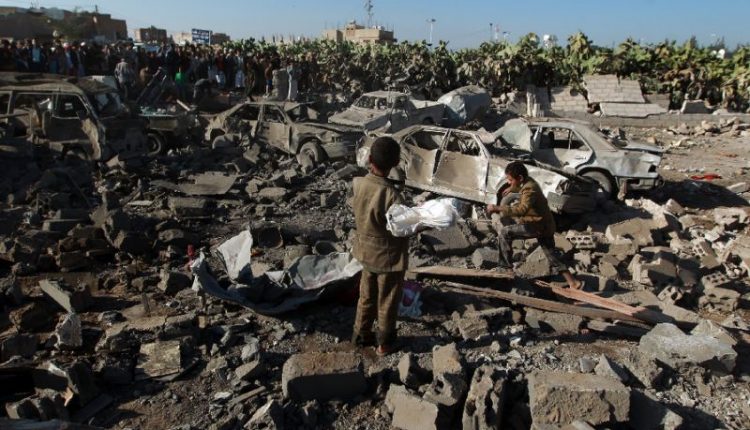Source: www.theglobepost.com
The Houthi regime in Yemen claims that Baha’is are waging a “Satanic war” against Muslim Yemenis. The escalation of hateful rhetoric conjures up frightening memories of what Baha’is in Iran faced immediately after the 1979 revolution.

Hamed bin Haydara, a leader of the Baha’i faith in Yemen, has been imprisoned since 2013 over charges of apostasy and insulting the Islam. He has reportedly been tortured and denied both medical and legal assistance. Over the past five years, his trial date has repeatedly been postponed, raising and dashing the hopes of his community. When the Houthi courts of northern Yemen finally issued a ruling on January 2, 2018, their decision brought shock, not relief. Not only is bin Haydara sentenced to public execution, but the country’s Baha’i institutions are to be legally disbanded, leaving the community leaderless and in fear of further persecution.
Tragically, in the five months since this blatant act of religious persecution, conditions for Baha’is in Yemen have worsened, prompting the U.S. State Department to issue a statement in May condemning “actions and rhetoric by Houthi leaders [that] exemplify the vilification and oppression of the Baha’is in Yemen” and calling on the Houthis to “end their unacceptable treatment of Baha’is” and to “allow the Baha’i community to practice their religion without fear of intimidation or reprisals.”
This comes following a baseless claim by the leader of the oppressive Houthi regime that Christians, Baha’is, Ahmadi Muslims, and other religious minorities are waging a “Satanic war” against Muslim Yemenis. He urged his followers to engage in cultural and religious warfare against these religious minorities and since, Houthi authorities have organized official training on fighting this “soft war.” Houthi-affiliated media and clerics have also warned of the dangers posed by Baha’is, and a prominent Houthi activist has called for the slaughter of all Baha’is.
This escalation of hateful rhetoric conjures up frightening memories of what Baha’is in Iran faced immediately after the 1979 revolution: nearly 200 Baha’i leaders were executed, and thousands were imprisoned. A 1991 Iranian government memo called for the eradication of Baha’is, not only in Iran but beyond its borders. Nearly four decades later, the execution of this policy continues and has now spread to Yemen.
Houthi forces have been receiving training and political support from Iran since the early days of the Yemeni conflict. After taking control of northern Yemen, they arrested dozens of Baha’i youth at a 2016 meeting and issued arrest orders without cause for more than 20 Baha’i leaders and teachers in April 2017. Local sources have reported that Iranian authorities are directing the Houthis in this crackdown, and there can be no doubt of the similarity in rhetoric: both the Iranian government and the Houthi authorities deny that the Baha’i faith is a religion at all, rather, a heretical “sect” or “movement.”
At the U.S. Commission on International Religious Freedom, a bipartisan government agency tasked with monitoring and advising the State Department, Congress, and Administration on violations of freedom of conscience, we strenuously denounce the death sentence issued to bin Haydara and the threats issued against Baha’is and other religious minorities in Yemen. We join the State Department and organizations worldwide in calling upon the Houthi authorities to immediately release bin Haydara and the other five Baha’is who are imprisoned in northern Yemen solely for their beliefs.
Many of the young Baha’is of Iran who are today denied education and employment have never known a world in which they were not demonized by the government ruling their country; we cannot let the same fate befall the Baha’is of Yemen.
Leave a Reply